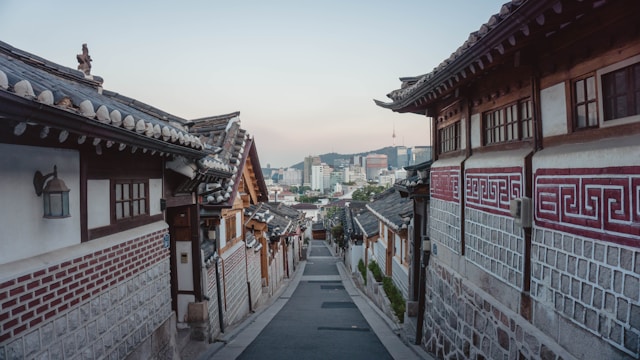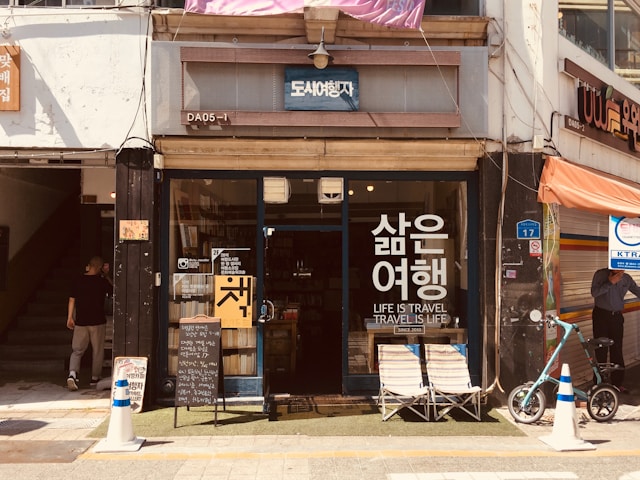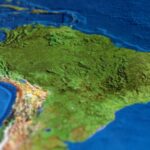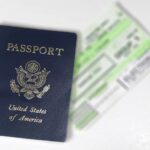
As globalization accelerates, more and more Koreans choose to move overseas in search of better life and career opportunities. As the trend of overseas immigration increases, which cities have become ideal places for Koreans to live? This article will explore several of the best overseas cities preferred by expats, especially Koreans, that not only have a high-quality living environment, but also provide job opportunities, cultural adaptability, and living conveniences that Koreans value.
1. Los Angeles (USA)
Los Angeles, as the second largest city in the United States, is the preferred destination for many Koreans to immigrate overseas. This city not only has the world’s leading entertainment, technology and educational resources, but also has a strong Korean community and a profound Korean cultural background. Los Angeles’ multiculturalism and broad cosmopolitanism make it an ideal place for Koreans to live. The advantages and challenges of Los Angeles as the best overseas residence for Koreans will be analyzed in detail below.
Advantages
1. Strong Korean community and cultural adaptability
- Koreatown: Los Angeles’ Koreatown is one of the largest Korean communities in the world, with a large number of Korean immigrants and their descendants gathered here. There are many traditional Korean restaurants, supermarkets, cafes and cultural centers in Koreatown, where you can find almost all Korean goods. Whether it’s Korean barbecue, kimchi, or Korean cosmetics, Korean immigrants can easily find the taste of home here.
- A bridge between cultures and languages: Los Angeles has many Korean cultural events, including Korean festivals, K-pop concerts, etc. These events help Koreans maintain close ties with their motherland. Moreover, there are a large number of Korean services in the Korean community in Los Angeles. Whether it is public services, medical resources, or daily life needs, you can easily communicate in Korean.
- Ease of language adaptation: Although English is the dominant language, the existence of a Korean community allows Koreans to adapt to life in the early stages. Schools, shops, restaurants and medical facilities in the community all offer Korean-language services, greatly easing the stress of the language barrier.
2. World-class education and medical resources
- high quality education system: Los Angeles has world-class educational resources.UCLA(UCLA) andUniversity of Southern CaliforniaWell-known universities such as (USC) have attracted a large number of international students, including many Korean students. Los Angeles’ schools and education system are also known for their diversity and high-quality teaching, providing a broad learning platform for Korean students.
- Top medical facilities: Los Angeles’ medical services are among the world’s leading, withKaiser Hospital Los Angeles(Cedars-Sinai Medical Center) and other well-known medical institutions. These hospitals not only provide high-end medical equipment and technology, but the quality of medical services is also very high. Koreans can enjoy advanced medical care here, especially in emergency medical care and professional treatment.
3. Rich career opportunities
- A global center for the entertainment industry: As the center of the global entertainment industry, Los Angeles offers a wealth of career opportunities, especially in film, television, music, fashion and the arts.HollywoodandLos Angeles Film Production CenterThere are tremendous career opportunities available to Koreans in the global film and television industry. Many Korean actors, directors and producers have achieved success here.
- Technology and financial industries are booming: In addition to the entertainment industry, Los Angeles isscience and technologyandfinanceCareer opportunities in the field are also abundant. In particular, the technology corridor between Silicon Valley and Los Angeles attracts a large number of technical talents. Technology companies such asSpaceX, **Snap Inc.** and many startups provide employment opportunities for professionals. As one of the financial centers in the United States, Los Angeles also provides high-paying jobs for financial professionals.
challenge
1. High cost of living, especially housing costs
- Expensive house prices and rent: Los Angeles is one of the most expensive cities in the United States, especially incity centerandseaside area. In 2023, Los Angeles’ median home price will be close to1 million US dollars, while city center rents typically range from$2,500 to $4,000between. For Koreans new to Los Angeles, paying the high cost of housing is often a huge challenge. Many people choose to move further away from the city centre, but this also means more commuting time and costs.
- high cost of living: In addition to housing, daily expenses (such as food, transportation, medical care, etc.) in Los Angeles are also relatively high. While wages in Los Angeles are generally higher, the high cost of living can take a significant chunk out of your income. For many families, how to balance income and expenses and maintain financial stability is an important consideration.
2. Urban traffic congestion problem
- traffic jam: Traffic in Los Angeles has long been a point of complaint. Although Los Angeles has a hugehighway system, but due to the large population and too many vehicles, traffic is often stuck in serious jams. Especially during rush hours, car owners and commuters often need to spend a lot of time on the road.
- Public transportation is not convenient: Although Los Angeles has some public transportation lines (such as subways and buses), compared to other large cities, Los Angeles’s public transportation system is not comprehensive enough to meet the needs of all residents. As a result, most people rely on private cars to travel, further exacerbating the traffic congestion problem.
2. Singapore
Singapore, located in the heart of Southeast Asia, has become a popular choice for Koreans to emigrate overseas due to its unique geographical location, prosperous economy and efficient government management. Singapore’s multicultural and cosmopolitan atmosphere, combined with its excellent public services and safety and security, make it an ideal place to live for expats from around the world. For Koreans, this city is not only convenient and comfortable, but also provides good career opportunities and a stable living environment.
Advantages
1. Stable political environment and efficient government management
- political stability: Singapore is known for its high degree of political stability. The government adheres to the principle of the rule of law and the implementation of national policies is strict and transparent. This stability has attracted a large number of expats and multinational companies to set up headquarters or branches here. Whether they are foreign employees or families, they can enjoy the confidence and security brought by the long-term stability of the country.
- efficient government management: The management measures implemented by the Singapore government are very efficient, especially in urban planning, traffic management and public services. Singapore’s infrastructure is well built, its transportation system is convenient, and its urban environment is clean and tidy. These are all due to the government’s careful design and implementation of urban planning. Koreans in Singapore can often feel the efficient operation of the government, and all kinds of services in life can be provided on time and accurately.
2. High-level education and medical system
- international education system: Singapore’s education system is considered one of the best in the world. Both public and private schools in Singapore provide high-quality education, with curriculum content that keeps pace with global trends. For Korean families, Singapore’s education system can well meet their high requirements for their children’s education. Many Koreans choose to send their children to Singapore for education, especially given the cultural similarities between Singapore and South Korea, as well as the rigor and high standards of the education system.
- Excellent medical service: Singapore’s medical system is also world-leading. Singapore’s public hospitals and private medical institutions are equipped with advanced medical equipment, the quality of medical services is extremely high, and the medical staff are highly professional. During their stay in Singapore, Koreans can not only enjoy high-level medical protection, but also ensure their quality of life through various health examinations and medical services. Singapore’s health management system is efficient, and the hospitalization and medical treatment procedures are very convenient.
3. High quality of life and good public security
- quality living environment: Singapore is considered one of the most livable cities in the world, with an extremely high quality of life. The city’s air quality is good, the greening rate is high, the streets are clean, and the public security is also very good. Whether walking in the park, shopping or dining out with the family, Koreans can appreciate the fresh and pleasant living environment in Singapore. Singapore’s public services (such as garbage disposal, public toilets, street cleaning, etc.) are efficient and citizens’ lives are convenient.
- low crime rate: Singapore is known for its extremely low crime rate and its security situation is one of the best in the world. Go out at night with little to no worries about safety. The government’s strict laws and efficient enforcement make Singapore a very suitable place for families and singles to live. For expats from South Korea, especially those settling with their families, Singapore’s safe environment is undoubtedly an important plus.
challenge
1. The cost of living is high, especially housing
- Housing costs are high: Although the quality of life in Singapore is very high, its cost of living is also relatively high, especially in terms of housing. Although Singapore has government-subsidized public housing schemes, expats tend to prefer renting in private high-end apartments or houses, which are very expensive to rent, especially in the city center and waterfront areas. Depending on market conditions, rent for a two-bedroom apartment in the city center can be as high as 3,000 Singapore dollars (approximately US$2,200) per month, while rents in areas far from the city center should not be underestimated. For Koreans who have just moved to Singapore, how to find cost-effective housing and control the cost of living is a big challenge.
- High cost of living: In addition to housing, daily prices in Singapore are also relatively high. Prices for food, daily necessities, transportation and entertainment are much higher than in other Asian cities. Especially in terms of catering, although there are many restaurants in Singapore with different price ranges, the overall consumption level is relatively high, and the cost of eating out will also account for a large part of household expenses.
2. The work visa policy is relatively strict and competition is fierce.
- Visa requirements are strict: Singapore’s work visa policy is relatively strict, especially outside of high-skilled and professional fields. To obtain a work visa, foreigners usually need to meet certain academic qualifications, work experience and salary standards. Although Singapore providesEmployment PassandS passand other types of work visas, but overall, foreigners must face relatively strict scrutiny when applying for work visas.
- Competitive workplace environment: The job market in Singapore is very competitive, especially in high-end industries such as finance, technology and education. Although Singapore attracts a large number of international companies and multinational enterprises, positions in these companies are often very competitive and demanding. For Koreans, especially those immigrants who are in the early or middle stages of their careers, how to stand out in such a competitive market is a challenge that must be faced.
3. Sydney (Australia)
Sydney is one of the most attractive cities in Australia and an ideal overseas residence for many Koreans. As an international metropolis, Sydney not only has a pleasant climate and rich natural landscapes, but also provides high-quality education, medical resources and a complete social welfare system. More importantly, as Sydney is a multicultural city, Koreans can easily integrate into it and enjoy the convenience and inclusiveness brought by multiculturalism.
Advantages
1. Good living environment and warm climate
- pleasant climate: Sydney’s climate is known as one of the most pleasant on earth. It is a temperate climate with mild winters, warm summers and four distinct seasons. Compared with South Korea’s cold winter, Sydney’s winter temperatures are moderate, allowing many Koreans to enjoy a warmer living environment. Sydney’s abundant sunshine is suitable for families and individuals who like outdoor activities. Its abundant natural landscapes such as beaches, gardens, and mountains provide residents with a wealth of leisure and entertainment options.
- Rich natural landscape: Sydney is very rich in natural resources, with the world-famous Sydney Harbor, Bondi Beach and surrounding national parks. These natural attractions not only provide local residents with excellent outdoor activities, but also make Sydney’s air quality good and the living environment very suitable for families. Especially for families who are used to South Korea’s climate with four distinct seasons, Sydney’s climate is warmer and more pleasant, allowing them to better adapt and live.
2. High-quality public services and social welfare system
- Perfect public services: Australia’s public service system is very complete, especially in education and medical care. As one of Australia’s largest and most developed cities, Sydney has world-class hospitals and schools. Sydney’s public schools have high education quality and international curriculum. Many Korean families choose to send their children to Sydney for education. In terms of medical care, Sydney’s public hospitals and private medical service facilities are very complete, the medical level is high, and the social welfare system is very complete. Foreign residents can also enjoy fair treatment in medical treatment.
- social welfare system: Australia’s social welfare system provides a wide range of health security, pensions, unemployment benefits and other services. As Australia’s economic, financial and cultural center, Sydney’s social welfare and public services are particularly efficient and extensive. Koreans can enjoy a series of benefits here including universal medical insurance, education subsidies, social insurance, etc., which reduces a lot of stress in life.
3. Rich job opportunities, especially in the financial, medical and education industries
- Abundant job opportunities: Sydney is one of the economic centers of Australia, with abundant job opportunities in finance, technology, education, medical and other fields. As an international metropolis, Sydney has attracted the headquarters or branches of many multinational companies and global enterprises, especially in the financial industry. Sydney has world-leading securities and banking businesses. For Koreans with professional skills, the financial, medical and educational fields provide many high-paying job opportunities.
- Good career development environment: Sydney’s job market is very diverse, and Koreans can find career opportunities that match their background and experience. In particular, highly skilled workers often find high-paying jobs in industries such as healthcare, education, and finance. In addition, Australia’s immigration policy for high-skilled talents is relatively relaxed, providing more opportunities for Korean professionals who want to develop in Sydney.
challenge
1. Housing prices are high, especially in downtown areas
- high housing prices: Sydney house prices are among the highest in Australia, with prices rising especially in and around the city centre. According to the latest market data, house prices in central Sydney are generally more expensive, and buying an average apartment can cost more than A$1 million (approximately US$600,000). Even if you rent, rent in the city center is not cheap. For many Koreans who have just arrived in Sydney, finding suitable and affordable housing is a big challenge.
- Reasons why house prices are too high: As an international metropolis, Sydney has a dense population, strong demand, and limited land, causing urban housing prices to continue to rise. Many Koreans choose to find accommodation in the suburbs of Sydney. Although rent is relatively cheap, transportation costs and long commuting times may affect the convenience and quality of life. For those Korean families who want to live in the city center, they may have to face the pressure of high housing prices.
2. High-tax living standard book
- high tax burden: Australia’s personal income tax is relatively high, with the highest tax rate reaching 45%. This means that Koreans may need to bear a higher tax burden when working in Sydney. Although Australia’s social welfare system provides residents with abundant security, high taxes may cause some immigrants to feel greater pressure on their income.
- higher cost of living: The overall cost of living in Sydney is higher, especially when it comes to food, transport and daily consumer goods. Although Sydney has numerous shopping malls and supermarkets, prices for food and daily necessities are generally higher. Eating out can be expensive, especially at restaurants in city centres, where prices are often higher than in other cities. For Koreans new to Sydney, it may take some time to adjust to and manage the high cost of living.
4. Tokyo (Japan)
Tokyo, as one of the most influential cities in the world, has long attracted a large number of foreign residents, especially Koreans. As a neighbor of South Korea, Japanese culture and lifestyle have many similarities with South Korea, which makes Tokyo the first choice for many Koreans to settle. Not only does Tokyo have a world-class public transportation system and efficient urban planning, it also offers abundant job opportunities, especially in the technology, engineering and manufacturing fields. For those who want to live in a productive and stable environment, Tokyo offers an ideal living option.
Advantages
1. Efficient public transportation systems and urban planning
- Complete transportation network: Tokyo’s public transportation system is considered one of the most advanced and efficient in the world. The city’s subways, light rails, buses and other means of transportation are not only punctual, but also cover a wide range of areas, which greatly facilitates residents’ daily travel. The subway system is connected to every corner of the city, making Tokyo’s traffic relatively smooth both during peak and off-peak periods. For Koreans who are not used to driving, Tokyo’s public transportation is undoubtedly a huge advantage, especially in the complex traffic environment of Japan’s big cities, public transportation has become the most reliable way for people to travel.
- City planning is orderly: Tokyo’s urban planning is reasonable, with clear regional distribution and optimized traffic route layout, allowing residents to find a balance of life, work and entertainment in different areas. For example, commercial areas are relatively separated from residential areas, reducing conflicts between life and work. Especially for professionals, living closer to their workplace can greatly save commuting time and enjoy more private time. This is especially important for many Koreans, who value quality of life and efficient work arrangements.
2. Rich job opportunities, especially in technology, engineering and manufacturing
- A hub for the technology and innovation industries: Tokyo is an important center for global technological innovation and technological development. Many internationally renowned technology companies such as Sony, Panasonic, Toyota, etc. are headquartered here. Especially in fields such as information technology, artificial intelligence and robotics, Tokyo provides abundant employment opportunities for technical talents. For Koreans with relevant professional backgrounds, Tokyo is not only a vibrant job market, but also has a strong technology and innovation atmosphere, which can provide broad space for career development.
- Engineering and manufacturing are strong: Tokyo is a world-famous manufacturing and engineering industry center, especially in the automotive, electronics, machinery and construction industries. Tokyo’s related industrial chains are very mature. South Korea’s engineering and technical talents and manufacturing practitioners can often find jobs in Tokyo that match their skills and receive generous salaries. As Tokyo continues to strengthen its connections with global markets, more and more multinational companies are setting up offices and R&D centers here, further broadening job opportunities.
3. High cultural similarity, easy to adapt
- cultural similarities: Due to similarities in geographical and historical backgrounds, Tokyo and Seoul share a high degree of similarity in many cultural aspects. There are strong similarities in the eating habits, festival celebrations and social etiquette between the two countries, which makes it easier for Koreans to adapt to life in Tokyo. For example, there are many Korean restaurants and shops in Tokyo, and Korean culture has been well inherited and developed in Tokyo. Koreans can not only find familiar food here, but also feel a living atmosphere similar to their hometown culture.
- Differences in language and social customs are minor: Although Japanese is the main language in Tokyo, Koreans are generally able to understand and learn Japanese relatively quickly due to the similarities in language structure and pronunciation between Korea and Japan. Many Koreans can also use basic Japanese to communicate with local people in their daily lives and gradually integrate into local society. In addition, Tokyo’s society is well-ordered and public facilities are complete, so Koreans can easily adapt to the local rhythm of life and habits.
challenge
1. High cost of living, especially rent
- high rent: The cost of living in Tokyo, especially rent, often puts it out of reach for many expats. Although Tokyo has a well-developed subway system, rent in the city center is extremely expensive, especially in business districts such as Shibuya, Shinjuku, and Roppongi. The rent for a studio apartment often exceeds 100,000 yen (approximately US$700) or more. For Koreans who have just arrived in Tokyo, high rent can be a significant financial burden, especially if there is no suitable job and source of income.
- Other aspects of cost of living: In addition to rent, the prices of daily consumer goods in Tokyo are also higher. Although Tokyo has many high-quality supermarkets and shopping malls, prices for food, transportation, and daily expenses are generally higher than in other Asian cities. For those Koreans with limited budgets, how to balance daily living expenses will be a challenge that needs to be solved.
2. Japanese being the primary language, language barriers can be a challenge
- Japanese is the main language: Although many businesses and institutions in Tokyo are expat-friendly, Japanese remains the main language of communication in Tokyo. For Koreans who have no foundation in Japanese, language may become a big obstacle. Although many Koreans have an advantage in learning Japanese, a high level of Japanese language proficiency is still the key to entering many fields, especially the high-end workplace. Especially in medical, legal and other fields, fluent Japanese communication skills are almost a must.
- Difficulty of cultural and language adaptation: Although Tokyo and Seoul have many cultural similarities, in daily life, the complexity of Japanese and the etiquette requirements of Japanese society still cause certain adaptation pressure for Koreans. Especially in a workplace setting, Japanese culture tends to be stricter about honorifics and respect for superiors than in Korea, and it may take some time for Koreans to adjust to this culture.
5. Berlin (Germany)
Berlin, the capital of Germany and one of the most attractive cities in Europe, has attracted a large number of expats from all over the world in recent years, especially young people seeking innovative and creative career opportunities. For Koreans, Berlin is a city full of endless opportunities, especially in fields such as technology, art and design. Compared with other big cities, the cost of living in Berlin is relatively moderate. In addition, the city’s cultural atmosphere is open, diverse, and extremely inclusive. Koreans can integrate smoothly and find their own space here.
Advantages
1. A vibrant atmosphere for innovation and entrepreneurship, especially in the fields of technology and art
- Science and Technology Innovation Center: Berlin has become an important center for scientific and technological innovation in Europe in recent years. The city is home to numerous startups and technology businesses, especially in areas such as artificial intelligence, software development, digital marketing and biotechnology. Many world-renowned technology companies, such as Google and Amazon, have set up R&D centers in Berlin. For skilled workers, especially young people from South Korea, Berlin offers a wealth of employment opportunities and entrepreneurial support. Incubators and accelerator programs in the city also provide start-ups with funding, training and network support, making Berlin a hot spot for technological innovation.
- Booming arts and creative industries: Berlin is known for its unique artistic atmosphere and diverse cultural environment. It is a paradise for artists and designers from all over the world. Berlin attracts a wealth of international talent, whether in the visual and performing arts, or in fashion, architecture and design. Korean artists and designers have access to world-class art resources in Berlin and can work with people from different cultural backgrounds to create creative works. Berlin’s street art, galleries, design exhibitions and creative markets provide endless opportunities and inspiration for art practitioners.
2. Relatively low cost of living and rich social welfare
- lower cost of living: Compared with other European big cities such as London and Paris, the cost of living in Berlin is relatively affordable. Although rents in Berlin have increased in recent years, compared with other international metropolises, rents are still relatively cost-effective. Rent for a one-bedroom apartment in the city center is typically less than €2,000 (approximately $2,200), while rent in areas further from the city center is even more affordable. In addition, Berlin’s daily living expenses are relatively low, and the prices of consumer goods such as food and transportation are relatively reasonable, making it suitable for young people and families.
- Complete social welfare system: Germany’s social welfare system is one of the most complete in the world, and Berlin is no exception. Public medical services, unemployment insurance, social security, etc. in the city provide good protection for residents. For expats, especially Koreans who have just arrived, Berlin’s social welfare and public service systems can help them adapt to life in the early stages and ensure basic living needs. In particular, medical and educational resources are relatively high-quality and affordable in Germany.
3. Diversified cultural environment, suitable for Koreans to adapt to
- open cultural atmosphere: Known for its inclusive and diverse cultural atmosphere, Berlin is a global city that brings together residents from all over the world. There is not only a strong local German culture here, but also rich immigrant culture and cross-cultural exchanges. This diverse environment allows Koreans to find a greater sense of belonging here. Berlin’s community atmosphere is friendly and people are open to foreign cultures, which provides more opportunities for Koreans to live and integrate here.
- The influence of Korean culture: Berlin also has a relatively active Korean community, and Korean restaurants, supermarkets and cultural activities are also increasing. Korean K-pop, movies, TV series and other cultural products are widely welcomed and loved in Berlin, making many Koreans feel familiar and comfortable. In Berlin, Koreans can not only find the taste of their hometown, but also meet more like-minded people, communicate and share culture.
challenge
1. German is the main language and it may take time to adapt.
- language barrier: Although many young people and professionals in Berlin can communicate in English, German remains the main language in daily life and work. For Koreans, German can become an adjustment problem. Although many expats can improve their German proficiency through language courses, fluency in German is still a must in order to better integrate into the workplace and social circles. Especially in medical, education and other fields, the use of German is almost necessary, which may make some Koreans who first arrived in Berlin feel a certain amount of language pressure.
- Language learning curve is steep: German, as a language with complex structure and strict grammatical rules, is more difficult to learn than English or other Latin languages. For non-native speakers, it may take a longer time to master German and reach a certain level of communication, so Koreans may need to work harder to learn and adapt when they first arrive in Berlin, especially in work and social interactions, as language skills improve. appears particularly important.
2. Relatively cold climate with long winter
- climate adaptation: Berlin’s climate is a temperate continental climate, with cold and long winters, temperatures often below freezing, and short winter daylight hours. For Koreans who are accustomed to a warm climate, this may take some time to adapt. Winter’s cold and long periods of darkness can take a toll on one’s mood and health, so Koreans need to take extra steps to stay healthy both physically and mentally during winter in Berlin.
- Limited winter activity options: Although Berlin has many indoor activities and cultural venues, winter activity options in Berlin are relatively limited compared to South Korea. The long cold weather in winter also makes some outdoor activities less suitable, which may be a challenge for Koreans who are passionate about outdoor sports and sunshine.
6. London (UK)
London, as one of the world’s most influential financial, cultural and technological centers, has always been one of the preferred overseas residences for Koreans. This vibrant metropolis not only offers world-class career opportunities, but also offers a diverse mix of cultures, offering expats from all over the world a vast space to live and work. Koreans in London can enjoy convenient conditions similar to their own country’s culture, and at the same time, they can integrate into this international and diverse city atmosphere.
Advantages
1. As an international metropolis, it has abundant job opportunities
- A global center for the financial industry: London is one of the core cities in the global financial services industry. Many international banks, investment companies and insurance companies use London as their European headquarters. For Korean financial professionals, London is a city full of opportunities, especially in areas such as investment banking, asset management and capital markets. Even people with no local work experience can enter high-paying positions in the financial industry through the recruitment networks of international companies.
- Rapid developments in technology and innovation: With the rapid development of the technology industry, London has also become a technology innovation center in Europe and even the world. There are many startups and technology giants in the city, such as Google, Facebook and Microsoft, which have set up R&D centers in London. Tech talents in South Korea can find abundant career opportunities here, especially in fields such as artificial intelligence, blockchain, and data science.
- Rich opportunities in the arts and creative industries: London’s arts and creative industries are equally vibrant, attracting a large number of artists, designers and creative workers from around the world. Korean creative talents can have access to the world’s top cultural resources here and participate in industries such as film, music, fashion, and design. Whether working for a traditional large-scale art institution or participating in contemporary art exhibitions and creative design projects, London offers a wide range of opportunities.
2. Multicultural environment, suitable for foreigners
- Tolerant and diverse cultural atmosphere: London is one of the most cosmopolitan cities in the world, bringing together people from different countries and cultural backgrounds. The multicultural environment within the city allows expats, especially Koreans, to adapt quickly and find their own community. Cultural images from all over the world can be seen on the streets, shops and restaurants of London. Korean restaurants and Korean supermarkets are also very common in London. Koreans can easily find the taste and cultural connection of their hometown.
- Strong cultural adaptability: Since London is a global city for immigrants, many expats have similar experiences here. Koreans can connect and communicate with people from all over the world, while also sharing and passing on Korean cultural characteristics. The society in London as a whole is very tolerant of foreign cultures. Koreans can freely express their cultural identity here and enjoy the integration of multiculturalism.
3. Good public services and education system
- high quality education: London’s education system has always been regarded as world-leading, especially in the field of higher education. London’s universities and academic institutions, such as the University of London, Imperial College and the London School of Economics, all enjoy a high international reputation and attract top scholars and students from around the world. For Korean families with children, international schools, private schools and public schools in London all provide high-quality educational resources, and students can receive world-class teaching.
- health and social welfare: As the capital of the United Kingdom, London provides high-level public medical services. The UK’s National Health Service (NHS) provides relatively low-cost medical services to all residents, and expats can also enjoy these benefits. In addition, London’s social welfare system is relatively complete, covering various social security such as unemployment insurance, housing subsidies, and pensions, which helps Koreans settle down in this city.
challenge
1. High cost of living, especially housing
- Housing costs are high: London is one of the most expensive cities in the world, especially in the city center, where the cost of renting and buying a house is very high. Rent for a studio apartment in the city center can reach over £2,000 (approximately $2,600) per month, while rent for larger family homes and luxury apartments in the city center is even higher. Although rents in London have fallen compared to other major European cities, housing remains a challenge for many expats due to its large population and high demand.
- High daily expenses: In addition to housing, the cost of daily living in London is also relatively high. Food, transportation, entertainment and other expenses are not cheap, especially in city centers and popular areas. Although income levels are higher in London, many expats may feel some financial pressure as they adjust to the higher cost of living.
2. Political and economic uncertainty after Brexit
- Uncertainty caused by Brexit: The political and economic situation in London and across the UK has changed significantly since the Brexit referendum. The political uncertainty caused by Brexit has affected the work visa policy, tax system, cost of living and other aspects of foreigners. Many expats will consider the potential risks and challenges of Brexit when considering whether to settle in London long-term. In particular, there is still a certain degree of uncertainty over work visa policy, the labor market and the UK’s trading relations with other countries.
- Risk of economic slowdown: As the UK economy faces pressure from slower growth, job opportunities and wages in London are also likely to be affected. Especially after Brexit, the recruitment and investment decisions of some companies may change, which will affect the employment opportunities of Koreans in London. Therefore, when choosing London as a place to settle, expats need to pay attention to changes in the economic and political environment and assess the associated risks.
7. Taipei (Taiwan)
Taipei, as the capital of Taiwan, is not only the political, economic and cultural center, but also the preferred overseas residence for many Koreans due to its quality of life, low prices and similarities with Korean culture. The pace of life in Taipei is relatively slow, making it ideal for expats who seek a work-life balance and value personal space and time. For Koreans, Taipei is not only geographically close, but also has many cultural similarities, making it a comfortable and easy-to-adapt place to live.
Advantages
1. Lower cost of living, especially housing
- Housing prices are relatively affordable: Compared with many cosmopolitan cities, the cost of living in Taipei, especially housing costs, is relatively low. Apartment and house rents in urban areas are much cheaper than in cities such as Hong Kong, Tokyo, and London. In Taipei, you can find suitable accommodation at more reasonable prices, whether it is a single apartment or a family home. For Koreans on a tight budget, Taipei is an ideal choice that offers a high quality of life while lowering living expenses.
- Daily consumption is also cheaper: Daily consumption such as catering, transportation, and entertainment in Taipei is relatively affordable. When dining out, whether it’s traditional Taiwanese snacks or international restaurants, the prices are generally relatively affordable. Public transportation systems such as subways and buses are also well developed and affordable, making them suitable for daily commuting and travel.
2. Korean culture has extensive influence in Taipei, and language communication is relatively convenient.
- The profound influence of Korean culture: Taipei has a strong Korean cultural atmosphere. Korean TV dramas, music, fashion and food are all very popular in Taipei, and many Korean brands and stores have also set up shop in Taipei. Not only are Koreans able to find familiar cultural elements, but they are also able to share and spread Korean culture with local Taiwanese and other expats. Taipei’s Korean restaurants, supermarkets and specialized Korean cultural activities enable Koreans to feel the warmth of home and enhance their sense of belonging.
- Language communication is more convenient: Many people in Taipei speak English fluently, especially in the business and tourism industries. In addition, due to Taipei’s close ties with Korean culture, many Taiwanese people also understand Korean and even speak some Korean. Koreans can easily communicate with locals, which not only facilitates communication in daily life, but also provides Koreans with more opportunities to integrate into Taipei society.
3. High-quality medical and educational resources
- Excellent medical system: Taipei’s medical system has a high reputation throughout Asia. Its hospitals and clinics have advanced facilities and the level of doctors and medical personnel is also quite high. Both public and private hospitals in Taipei provide high-quality medical services at more affordable prices than in other developed countries. For Koreans with health needs, Taipei’s medical services are undoubtedly an important advantage.
- Rich educational resources: Taipei has very rich educational resources, covering various educational institutions from primary schools to universities. Many schools and universities in Taipei have international education programs, and some schools offer English instruction, which is very attractive to foreign students, especially Korean children. In addition, there are many international schools in Taipei that provide high-quality educational services, allowing Koreans to ensure that their children receive a good education when living in Taipei.
challenge
1. Job opportunities are relatively limited, especially in high-paying industries
- Competition for high-paying jobs is fierce: Although Taipei’s job market is relatively open, especially for foreigners, job opportunities in certain high-paying industries (such as finance, technology, etc.) are more limited. Job opportunities in Taipei are mainly concentrated in small and medium-sized enterprises and the service industry, while the number of multinational companies and global enterprises is relatively small. For those Koreans hoping to find jobs in high-paying positions or high-end industries (such as investment banking, technology research and development, etc.), opportunities in Taipei may not be as abundant as in other international metropolises.
- Language requirements: Although the English penetration rate is relatively high in Taipei, many companies, especially local companies, still prefer to hire employees who can speak Chinese fluently. For Koreans who don’t speak Chinese, finding a job can face language barriers, especially in industries that require Chinese proficiency. Although some international companies provide an English-speaking working environment, overall, fluency in Chinese is still the key to finding high-paying positions.
2. The pace of life is slower, suitable for people who prefer a low-pressure life
- Slower-paced work culture: The work pace in Taipei is usually slower than that in other international metropolises such as New York, London, and Tokyo. For those Koreans who are used to a fast-paced, high-efficiency work environment, they may find the working atmosphere in Taipei to be relatively relaxed, even a bit lazy. While this can be an advantage for expats looking to reduce stress and seek work-life balance, it may feel a lack of motivation for some seeking greater competitiveness and career challenge.
- Limited career development opportunities: Although the pace of life in Taipei is relatively leisurely, it also means there are fewer opportunities for career development, especially in industries with high competition and significant career advancement. For Koreans who want to be promoted quickly and expand their international careers, Taipei may not offer broad career development space like cities like New York and London.
in conclusion
As the trend of Koreans emigrating overseas continues to grow, cities such as Los Angeles, Singapore and Sydney have become ideal places for them to live. These cities not only provide abundant career opportunities and high-quality educational and medical resources, but also attract a large number of Korean immigrants because of their cultural adaptability and convenience of life. The Korean community and entertainment industry in Los Angeles, the political stability and efficient government management in Singapore, and the pleasant climate and natural landscape in Sydney all provide an ideal living environment for Koreans. However, these cities also face challenges such as high living costs, competitive workplace environments and housing pressures. Taken together, choosing the best overseas residence for Koreans depends not only on quality of life and career opportunities, but also on their own economic status and immigration policies. Therefore, understanding the advantages and challenges of different cities and planning a reasonable migration path are the keys to ensuring successful adaptation to overseas life.





